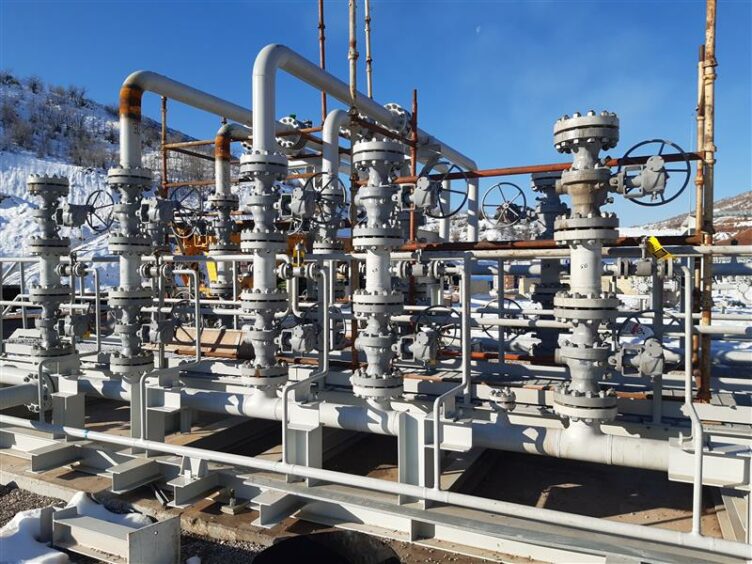
Geologically, Kurdistan’s resources are not in question. In the last year, though, oil exports have frozen as a result of commercial and political obstacles.
Association of the Petroleum Industry of Kurdistan (APIKUR) is a pressure group made up of the local producers. A recent statement from the group set out conditions before full production, and exports, could restart.
One of the companies involved is ShaMaran Petroleum, part of the Lundin Group. CEO Garrett Soden told Energy Voice that discussion of a quick return to exports was premature. “APIKUR has made it clear that the IOCs would need to know how and when they’re going to be paid for past and future oil exports.”
Discussion tends to focus on the pipeline, which runs from Kurdistan into Turkey and an export terminal. The central government in Baghdad now controls the pipeline. It must reach an agreement with Turkey and Kurdistan to reopen the link – but also the companies producing the oil in Kurdistan.
The producers, all independents following the withdrawal of majors, complain they have not been paid by the Kurdistan Regional Government (KRG) since October 2022.
Resuming exports, therefore, requires political and commercial agreements.
There are two sticking points, for APIKUR. The producers must have certainty around payments and receiving the money. But they must also be assured of their existing commercial terms.
Iraqi officials have talked of the need to “adjust” production-sharing contracts (PSCs), given that these types of agreement do not exist under federal law.
A recent report from law firm Amereller noted that Kurdistan’s PSCs are “more favourable to private investors than the technical services contracts (TSCs) and development and production services contracts (DPSCs)” signed by Iraq’s Ministry of Oil. Iraq’s contracts provide cost recovery and a fee per barrel.
Tackling payments
One of the companies involved is ShaMaran Petroleum, part of the Lundin Group.
The companies working in Kurdistan have contracts with the regional government, Soden said, “which we want to respect. As long as we’re paid according to our contractual terms, we’re willing to produce. There’s a significant amount of receivables owed for oil sales from October 2022 to March 2023.”
Under existing contracts, the Kurdistan Regional Government (KRG) is supposed to settle invoices for crude production monthly, with payment within 45 days.
“There is a history of delayed payments by the KRG, that were recovered over time – until the pipeline was shut in,” the ShaMaran CEO said.
The KRG is now caught in a bind. The region was due to produce 400,000 barrels per day, with Iraq’s central government paying 12.6% of the federal budget to Kurdistan.
The pipeline closure halted exports, but without progress on the receivables, the Kurdistan producers are reluctant to resume.
One solution would be for Iraq’s SOMO to step in as suggested by the Iraq 2023-2025 budget law passed in June. APIKUR has held talks on this possibility.
“We would have transparent sales at market prices, without intermediaries,” Soden said. “It would make sense to sell direct to SOMO. It would respect the PSCs that are in place, as we have the right to sell our share of production.”
Local sales
In the meantime, the companies are making some progress in local sales. ShaMaran’s two fields, Atrush and Sarsang, are now sending oil to local refineries by truck or pipeline. The average netback from Sarsang in the third quarter was just over $39 per barrel.
While local prices are below those in the international market, payments are made on time and “in some cases, there’s pre-payment for oil sales”, Soden said.
ShaMaran is generating positive cash flow, the executive said. The local producers have all cut costs and local sales provide scope to at least break-even.
However, local sales are “negative for Kurdistan, in that there is no new investment in these circumstances. I don’t expect anyone to drill, to increase production beyond March 2023 rates [prior to the pipeline closure]. These [local] oil prices will not support significant investment, even to arrest the natural decline rate.”
Local demand is growing, Soden said, and there have been some signs of increasing prices as more local traders and refineries look to take advantage of the oil price arbitrage.
Opportunity set
Financially, ShaMaran is in “good shape”, Soden explained. The company received a bond waiver in July. “Based on our expected local sales, with both assets producing, we can cover our costs, including interest and amortisation, for more than 12 months.”
The company has $28mn of its own bonds, which it can sell or use for amortization payments. This is in addition to $67mn in cash and receivables of $95mn. “We have various levers to pull as the situation evolves,” Soden said.
While the short term is challenging, the ShaMaran CEO was optimistic about the future. The company has carried out acquisitions in the past, with Marathon Oil at Atrush and TotalEnergies at Sarsang.
“There’s a good case for continuing consolidation in Kurdistan. There is of course regional political uncertainty, but the geology is good, operating costs are relatively low, and there are always assets for sale at the right price. We’re moving in a positive direction and the upside could be significant.”
There have been suggestions that oil exports could restart by the new year. This requires a number of challenging steps to be resolved, not least on contract terms.
ShaMaran, and others, can wait for now, but pressure is building on both sides to achieve a compromise and unlock those barrels – and resulting revenues.

